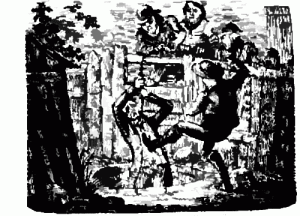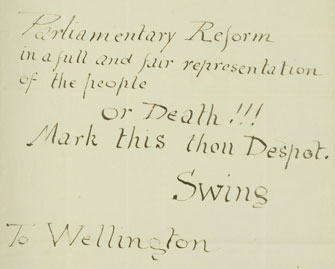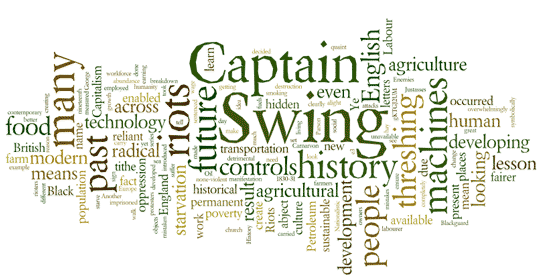“Who controls the past controls the future: who controls the present controlsthe past” – George Orwell
About hidden Histories
We have decided to have a hidden histories series not because the subject matter has been removed from English history, but more due to the fact that we have to dig about to resurface our radical history, it is not as easily available to access for the general reader. Many cultures are open and celebrate their radical historical past, but it seems that here in Britain we are in fact doing the opposite. Anyone looking on the surface of English history might be mistaken into believing the Nationalistic stereotypes about the British people and their so called measured reserve.
British history has not been some quaint development where Revolutions and acts of rebellion are carried out by ‘others’ from across the sea, we very much have a radical history where people have fought back against oppression and continue to do so within a modern contemporary context.
Who was Captain Swing?
 The actual name Captain Swing was used to sign letters that were delivered to land and farm owners as a means of protesting against the starvation and poverty that these new grain threshing machines were creating, here is an example of a short Captain Swing letter: Sir, Your name is down amongst the Black hearts in the Black Book and this is to advise you and the like of you, who are Parson Justasses, to make your wills. Ye have been the Blackguard Enemies of the People on all occasions, Ye have not yet done as ye ought … Swing.
The actual name Captain Swing was used to sign letters that were delivered to land and farm owners as a means of protesting against the starvation and poverty that these new grain threshing machines were creating, here is an example of a short Captain Swing letter: Sir, Your name is down amongst the Black hearts in the Black Book and this is to advise you and the like of you, who are Parson Justasses, to make your wills. Ye have been the Blackguard Enemies of the People on all occasions, Ye have not yet done as ye ought … Swing.
So in effect the Captain Swing letters were symbolically a representation of hard-working tenant farmers driven to destitution and despair by social and political change in the early nineteenth century.
What were the Captain Swing Riots?
The Captain Swing riots occurred in England during 1830-31 across a whole swathe of Southern England, the reason that these riots occurred was due to modern threshing machines being introduced into agriculture, the result of which led to the starvation of farm workers where many died as a result of not earning money to buy food for themselves and their families.
 In many places riots many hay ricks were set alight, in some places the protests took on none-violent forms such as church boycotts and walk outs. In Wroughton in Wiltshire the protest amounted to people smoking pipes in the cemetery as a means of getting their point across.
In many places riots many hay ricks were set alight, in some places the protests took on none-violent forms such as church boycotts and walk outs. In Wroughton in Wiltshire the protest amounted to people smoking pipes in the cemetery as a means of getting their point across.
As well as the attacks on the threshing machines the protesters reinforced their demands with wage and tithe riots and by the destruction of objects of their oppression, such as workhouses and agricultural tithe barns During these riots many threshing machines were either dismantled or destroyed entirely, this resulted in 600 rioters being imprisoned, 500 were sentenced to transportation to Australia, and 19 were executed and 9 were hanged
The Swing Riots had many underlying and immediate causes, and were overwhelmingly the result of the progressive impoverishment and dispossession of the English agricultural workforce over the previous fifty years, leading up to 1830. In parliament Lord Carnarvon had said that ‘The English labourer was reduced to a plight more abject than that of any race in Europe’
What do the Captain Swing riots tell us about the development of a permanent culture for the future?
 History is a great way of looking at how we have worked in the past, as a means of developing a better future based on our looking at our past mistakes, developing a lasting and permanent culture in the future is no different, we need to look at elements of the past to ensure that we can create a more fairer and sustainable future, ironically the same agriculture that employed the threshing machines of the Captain Swing era have now developed even bigger machines to carry out the Labour of modern farming, this technology is completely reliant on a relatively new type of none human finite Labour, and that is Petroleum, 1 litre of Petroleum does the work of many human beings and has enabled an abundance of food to be made available; it has also provided food security which has enabled growth in the worlds population. The historical lesson we can learn here in relation to technology is that we should be developing tools that are not reliant on fossil fuels, and are not detrimental to the idea of human work where the only outcome is cash profit, the crux of our lesson here is to create people centred resilient low impact technology. a failure to do this will mean that as Oil becomes an even more precious are rare resource that it will be unavailable to use in agriculture and the transportation of food, with an ever growing global population the implications of a breakdown in this unsustainable agricultural model will no doubt mean starvation for many.
History is a great way of looking at how we have worked in the past, as a means of developing a better future based on our looking at our past mistakes, developing a lasting and permanent culture in the future is no different, we need to look at elements of the past to ensure that we can create a more fairer and sustainable future, ironically the same agriculture that employed the threshing machines of the Captain Swing era have now developed even bigger machines to carry out the Labour of modern farming, this technology is completely reliant on a relatively new type of none human finite Labour, and that is Petroleum, 1 litre of Petroleum does the work of many human beings and has enabled an abundance of food to be made available; it has also provided food security which has enabled growth in the worlds population. The historical lesson we can learn here in relation to technology is that we should be developing tools that are not reliant on fossil fuels, and are not detrimental to the idea of human work where the only outcome is cash profit, the crux of our lesson here is to create people centred resilient low impact technology. a failure to do this will mean that as Oil becomes an even more precious are rare resource that it will be unavailable to use in agriculture and the transportation of food, with an ever growing global population the implications of a breakdown in this unsustainable agricultural model will no doubt mean starvation for many.
Another lesson that we learn from this history in the development of a fairer and sustainable future is that Capitalism is quite prepared to let working class people starve and suffer abject poverty, we can clearlly see this in the Captain Swing riots and even more so in the present manifestation of Capitalism which leaves 80% of humanity living on less than 10 dollers a day.

